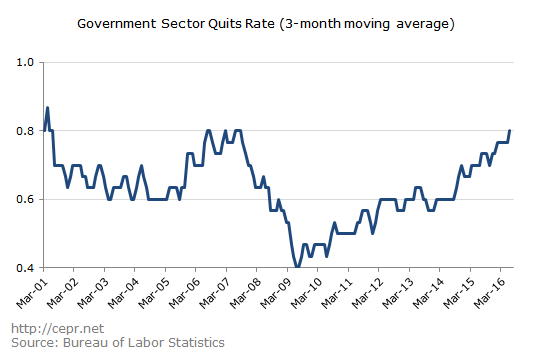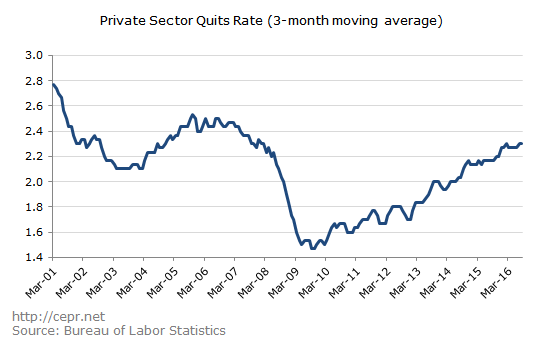October 19, 2016
Government jobs are often thought to be highly desirable, with high levels of job security and generous benefits. In fact, research shows that the greater generosity of benefits is offset by lower pay. Adjusting for education and experience, compensation levels for government workers is comparable to compensation levels for private sector workers. In the last decade, there have been efforts at all levels of government to reduce the pay and benefits of government employees, which have been motivated in part by the argument that government workers are overpaid.
The evidence is that these efforts have accomplished their goal. The quit rates for government sector workers have risen substantially relative to the quit rates for their counterparts in the private sector.
Quits rates in the government sector have consistently been lower than in the private sector. Since 2001, quits rates in the government sector were between 0.4 and 0.9 percent, while in the private sector they oscillated between 1.4 and 2.4 percent. This is largely due to the fact that government workers tend to be older and better educated than workers in the private sector, both factors that are associated with lower quit rates.


The figures above illustrate the 3-month moving average of quit rates in both the private and government sector (seasonally adjusted). The quit rate in the private sector is still 0.2 percentage points below its pre-recession level and almost 0.5 percentage points below the peak for this series in 2001. By contrast, the quit rate in the government sector is back to its pre-recession level and just 0.1 percentage points lower than its peak of 0.9 percent in the spring of 2001. The rise in the quit rate in the government sector relative to the quit rate in the private sector indicates that workers now view government jobs as less attractive relative to private sector jobs than they did in the years before the recession.






